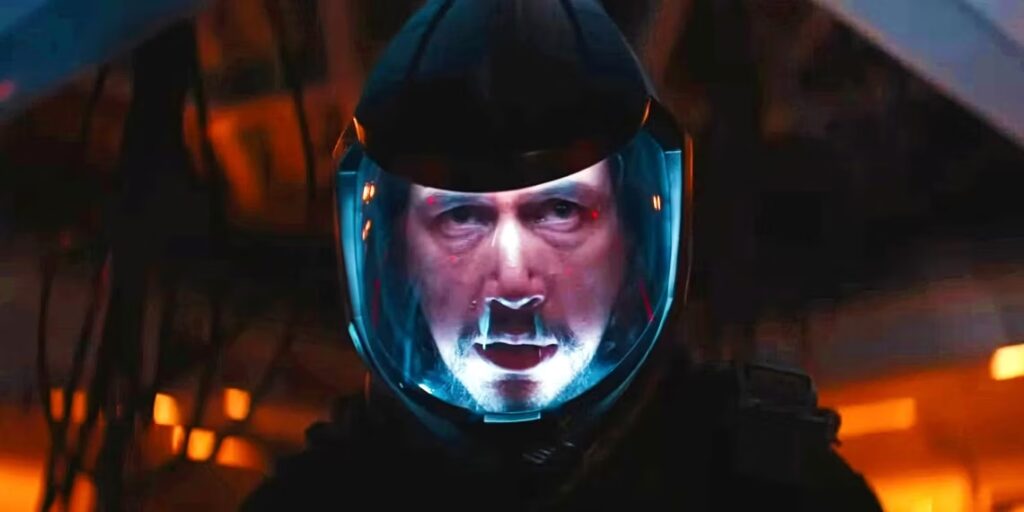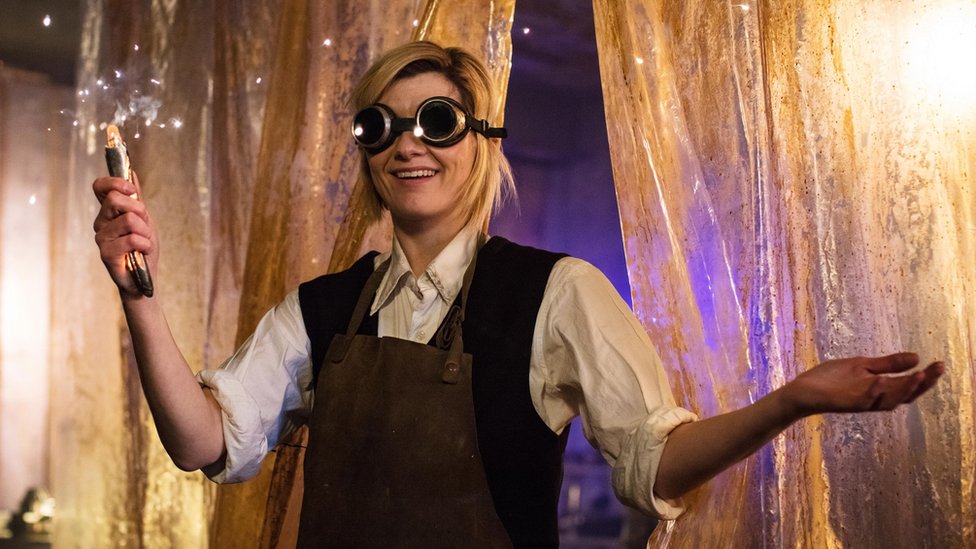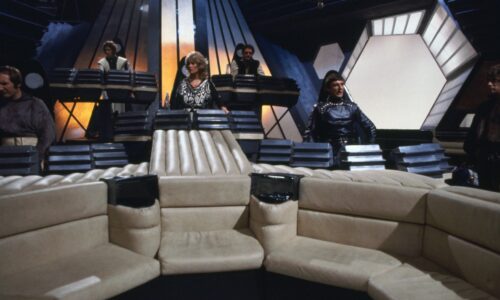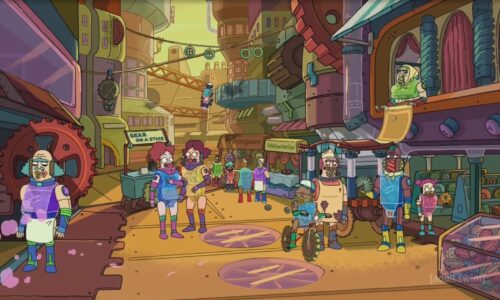
Sufficiently Advanced Technology
- Uncategorized
- May 19, 2023
One of the most boring opinions you can have is “Superman is boring because he’s too powerful”. In science fiction (Is Superman science fiction? If you like, we’re not here for that today) the nearest equivalent is probably Star Trek, particularly its 24th-century iteration. What can possibly be a threat to our heroes, who have sidearms that can vaporize you in one shot, forcefields, machines that can magically create any object on demand, holodecks that can simulate any setting or people, and magical teleporters?
“How are we supposed to tell interesting stories about characters that can do anything?” says the person with the boring opinion.
Of course, the easy answer is “Oh look! Here’s a baddy who can punch harder than Superman!/has an anti-forcefield raygun!/a forcefield even more powerful than your raygun! Now what are our heroes going to do?”
You might think this is a trick that can be easily overused, but honestly, it’s a rabbit you can pull out of the hat a near-infinite number of times and your audience will be right there clapping and bouncing up and down with excitement, because we love a good baddy.
But it is also the most boring possible response to the most boring opinion. Responding to “This character/technology is too powerful” with “Well now they’re relatively less powerful!” is conceding the point, not responding to it.

I started thinking about this this weekend when I watched “65”, the movie where an alien that looks exactly like a human crashes on prehistoric Earth and has to fight creatures that look virtually nothing like dinosaurs.
There’s a bit where Adam Driver’s character stumbled into a network of caves and whips out a handy Tricorder device which uses air flow detection to entirely map out the cave network. While we were watching this, my partner pointed out that it was nice to see someone in that situation keep hold of and use their technology. Usually in this scenario, the film can’t wait to strip the protagonists of all their tech so that they have to get back to nature and then kick the shit out of it, primordial caveman style. The “Dutch” arc, if you will. Instead, 65’s protagonists make clever use of only a few high-tech gadgets, leading to a climax that is clever, if in slightly poor taste under the circumstances (will leave out details here because this is a film you’re probably happy to catch on streaming).
The reason for giving Adam Driver magical cave mapping technology is simple- the film’s writer didn’t want Adam Driver blindly blundering around in a cave for the rest of the movie. And I think that speaks to a way of looking at sci-fi technology that we don’t often acknowledge.
When we talk about science fiction technology we tend to talk about it in terms of how scientifically plausible it is, or whether the technology is too “convenient”- a typical example is Doctor Who’s sonic screwdriver, which can do anything from unlock doors (apart from when it can’t) to fix barbed wire.

And there’s the rub. Technology (and magic, for that matter) in fiction, when it isn’t there to actively create problems, exists to work as a kind of “problem filter”. When choosing the level of technological advancement for your science fiction setting, when establishing what tools your characters have, the key question is “What problems do I want my characters to have to actually solve?”
In Fermi’s Progress, I deliberately set the tech level at about as close to baseline real technology as I could manage. I slightly fudged the feasibility of a single-stage-to-orbit reusable spaceplane, because I didn’t want my space explorers worrying about how to get back to the ship from every single planet they landed on. I also, very early on, had the characters run into a super powerful computer capable of translating basically any alien language on the fly, because I didn’t want most of every story to be about trying to establish number systems and hand signals with the other aliens they met.
With the problems of “leaving/returning to the ship” and “talking to aliens” solved, I was able to focus the story on the sorts of things I wanted my characters to be doing- being able to understand the aliens’ language meant that they could get on with the much more complicated job of understanding the aliens’ worldview. Being able to get on and off the ship meant that they could deal with the much more dangerous things on the actual planets.
The same is true of the sonic screwdriver. Does it get overused in the post-2005 series (I think, sadly, we’re past the point where we can call it “new”)? It gets used a lot more, definitely, because there is less time, and you want the Doctor solving mysteries and making big speeches about how great humans are and there’s much less time to deal with problems like “how to open this door”, which for the Doctor is a pretty boring problem.

Likewise, a good Superman story isn’t “Oh no! Here’s someone who can punch harder than Superman!” because the whole point in Superman’s powers is that punching isn’t an interesting problem for him to solve. Superman is invincible because the best stories about him aren’t about Superman protecting himself, they’re about protecting other people. He can punch anyone he meets into a marinara sauce, but the interesting thing about him, and the problem we want to watch him solve, is that he won’t. That’s why his main villain is “some guy in a suit”.
And Batman, the hero who people with the most boring opinion often hold up as Superman’s opposite, is exactly the same. More so, even. Is there a more striking example of “I’ve invented this technology because the writer wants to move on with the plot” than Shark Repellant Bat-Spray? Yes, that’s one, comedy-orientated take on the character, but that’s the point. Batman’s abilities and gadgets get dialled up and down across all media precisely depending on what problems the writer actually wants to see him solve, whether it’s street-level hoodlums with crowbars or fucking Darkseid.
And Star Trek doesn’t want to have to worry about getting on or off the planet, or how to talk to the aliens, and only sometimes how to stop someone running down a corridor, although of course, the key thing to remember about technology is that if you do want your characters to solve these problems, technology can break (and frequently does).
Meanwhile, The Martian is entirely and exclusively about getting off the planet, and so only the real subtle technological details are fudged there (I guess, I’m not actually a rocket scientist).
I think this is a good way of viewing technology. As in life, it’s a timesaver, it’s basically a form of editing. What problems do you want your characters to have to actually solve? Then have technology let them shortcut past the rest.
Chris’s novel, Fermi’s Progress is for sale at Scarlet Ferret with lots of bonus extras, and in paperback at Amazon.k





